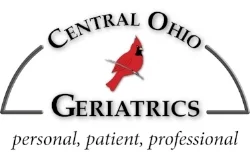By John M. Weigand, M.D.
Director of Geriatric Services
Central Ohio Geriatrics
Clostridium difficile, or C. difficile, is a bacterium that infects the colon (the large intestine) and causes diarrhea. In recent years, C. difficile infections have become more common worldwide. They are becoming more severe and harder to treat. Some people are getting C. difficile infection without being in the hospital (community-associated C. difficile). In years past, these infections were primarily the result of being hospitalized or recent hospitalization, which is why this condition is known as a health care-associated infection. Clostridium difficile is found in stool and is spread when people accidently touch areas contaminated by stool.
Taking antibiotics (to treat another infection) is a major factor that increases the risk of being infected with C. difficile. Antibiotics can kill normal, “good” bacteria that are normally found in the gastrointestinal tract and are necessary for digestion and bowel function. As the population of normal bacteria decrease due to antibiotic use, C. difficile has a chance to multiply and release toxic substances. These toxins then cause diarrhea and other symptoms of infections.
People who are older and people who take acid-lowering medications for heartburn or acid reflux may have a higher chance of being infected with C. difficile.
Symptoms
Some people who are infected who are infected with C. difficile have mild symptoms, whereas others have severe symptoms that require hospitalization. These symptoms can include
* Diarrhea that is watery, which can lead to dehydration if it is very severe
* Fever
* Abdominal pain and cramping
* Nausea and loss of appetite.
Diagnosis and Treatment
Clostridium difficile infection is found by testing a sample of stool. Most cases of C. difficile infection can be treated with a short (2 weeks or less) course of antibiotic pills. However, some strains of C. difficile do not respond to these antibiotics and require more treatment with different antibiotics for longer periods.
Sometimes, the infection can be very difficult to treat with antibiotics alone. An experimental procedure that has worked for some patients with difficult-to-treat C. difficile infection is fecal microbiotia transplantation (stool transplant). In this procedure, the “good” bacteria from the gastrointestinal tract of a person who does not have C. difficile infection are collected from a stool sample and placed directly into the gastrointestinal tract of the person infected with C. difficile.

